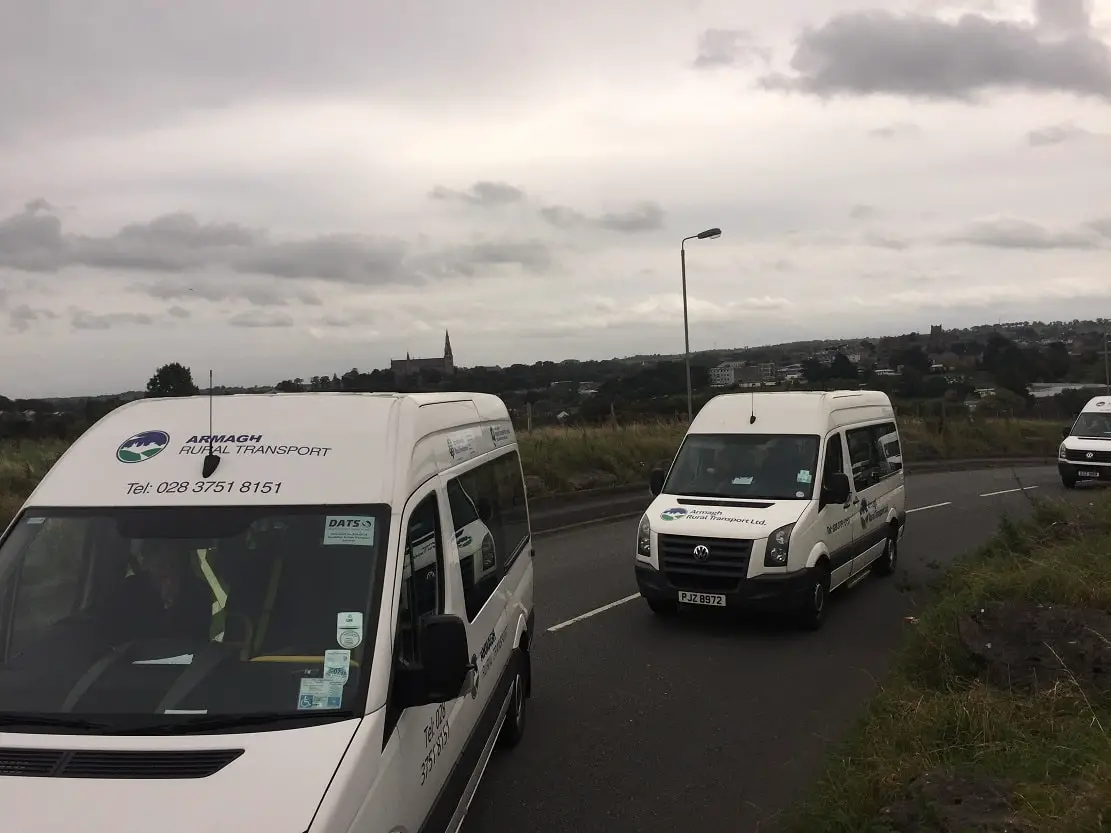
Calls for increased funding have been made on the floor of the Assembly to help Armagh Rural Transport – as it celebrates 25 years in operation – continue to provide its lifeline service.
The organisation, based at the Armagh Business Centre on the Loughgall Road, is an independent company limited by guarantee and a registered charity.
It aims to connect people and communities across the wider Armagh area by providing affordable and accessible transport to individuals and groups.
Services include the Dial-a-Lift scheme and the Disability Action Transport Scheme, both of which are funded by the Department for Infrastructure.
Infrastructure Minister Liz Kimmins visited the ART headquarters over the summer, where she met with management, volunteers and service users.
Now another Newry and Armagh MLA has used Community Transport Week as a vehicle to deliver a passionate appeal to ministers and decision-makers to increase the level of funding.
Justin McNulty also praised those who provide the service, both locally and across Northern Ireland as a whole.
“Community transport is about so much more than a minibus,” the local SDLP representative told the Assembly this week. “In rural parts of the North, distance can often be more than just miles on a map. It can mean the difference between getting the care that you need or going without.”
Mr McNulty said rural transport organisations “bridge that gap” – in particular, Armagh Rural Transport, which he visited just last week.
“I give a shout-out to Dermot Mooney and Joanne Curran – two effervescent, relentless and determined live wires who make that organisation tick,” said the MLA.
“Every week, Armagh Rural Transport quietly ensures that hundreds of local people, many of whom are elderly, isolated or living with mobility challenges, can attend hospital appointments and GP visits and get vital treatments. For them, these are not luxury trips; they are lifelines. Without those services, many simply would not get there. We are talking about 8,000 trips in one year.
“Where would those patients, families and communities be without those trips?
“Imagine being an older person living miles from the nearest bus stop, with no family care and facing a hospital appointment in Daisy Hill, Craigavon or Belfast. That is where Armagh Rural Transport steps in, with accessible minibuses and volunteer drivers offering door-to-door support, kindness and dignity.
“That is community spirit in action. It is people helping people. However, make no mistake: it is also healthcare delivery, because when transport fails, so too does access to care. Missed appointments become missed diagnoses, health inequalities deepen and the cost – human and financial – rises. That is why we must say clearly that community transport is not optional. It is a cornerstone of an inclusive health system.”
That said, Mr McNulty told how many such organisations, including Armagh Rural Transport, were operating under growing financial pressures, rising fuel costs, ageing vehicles and insecure funding streams.
He added: “Rural transport organisations need to be able to generate funds, and that can be done through group hire. They need sufficient capital funding to provide adequate buses.
“So today, I make this call directly to policymakers and to the Executive parties: if we are serious about tackling health inequality, promoting rural inclusion and caring for all our citizens, sustainable funding for our community transport must be part of that commitment.
“Invest in it, protect it and build it into health planning, funding and rural policy – not as an afterthought but as a foundation.
“Funding levels must be increased to address unmet need, because every journey that Armagh Rural Transport – and every rural transport organisation – makes is more than a trip: it is a statement that no one in our rural communities should be left behind.”



